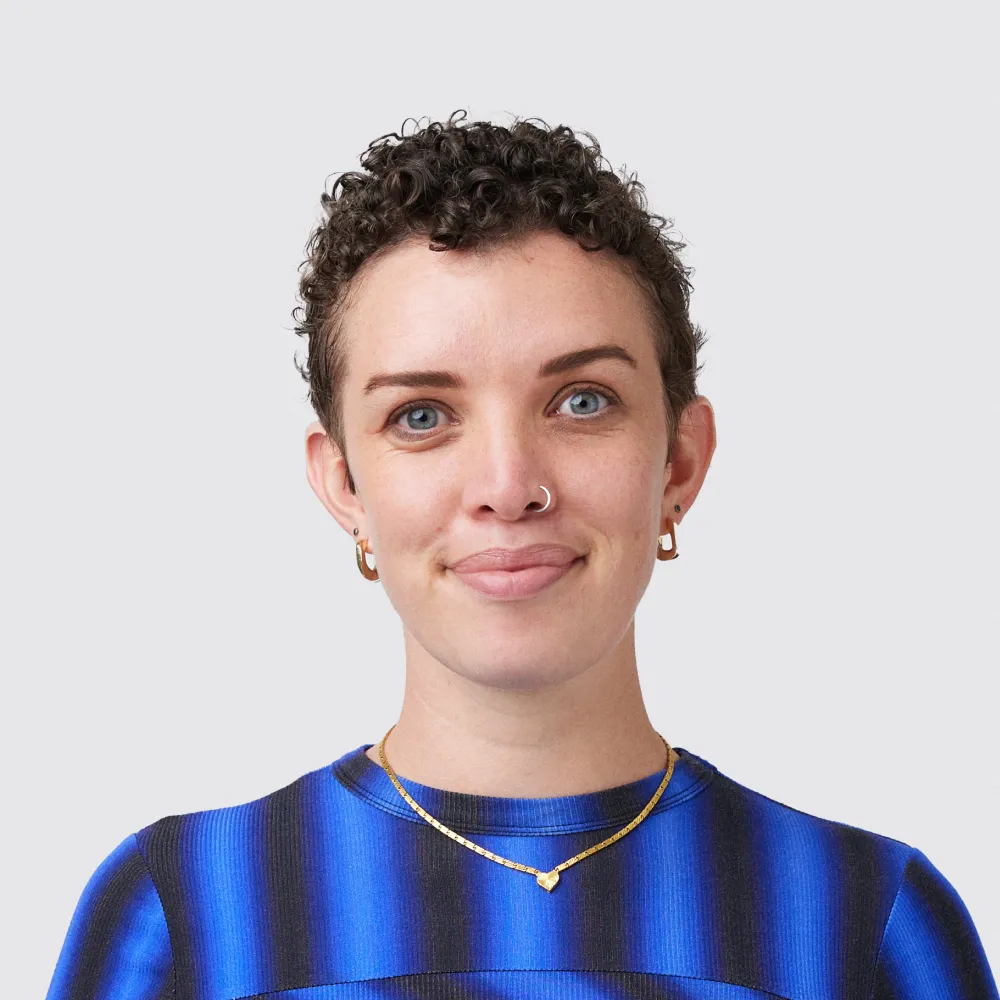HoMie looks like any fashion store: it sells hoodies, tshirts, and beanies. But unlike others, it’s also a social enterprise that gets young people out of homelessness.
In 10 years they’ve had over 2500 young people through their programs.
It’s a crafty and creative business model worth talking about. We caught up with two of HoMie’s team, Marcus and Jack, to hear about how HoMie works and why they do it.
Jack Howe, Head of Partnerships at HoMie
Marcus Crook, Creative Director at HoMie
Hayley Tasker, Senior Strategic Designer at Today
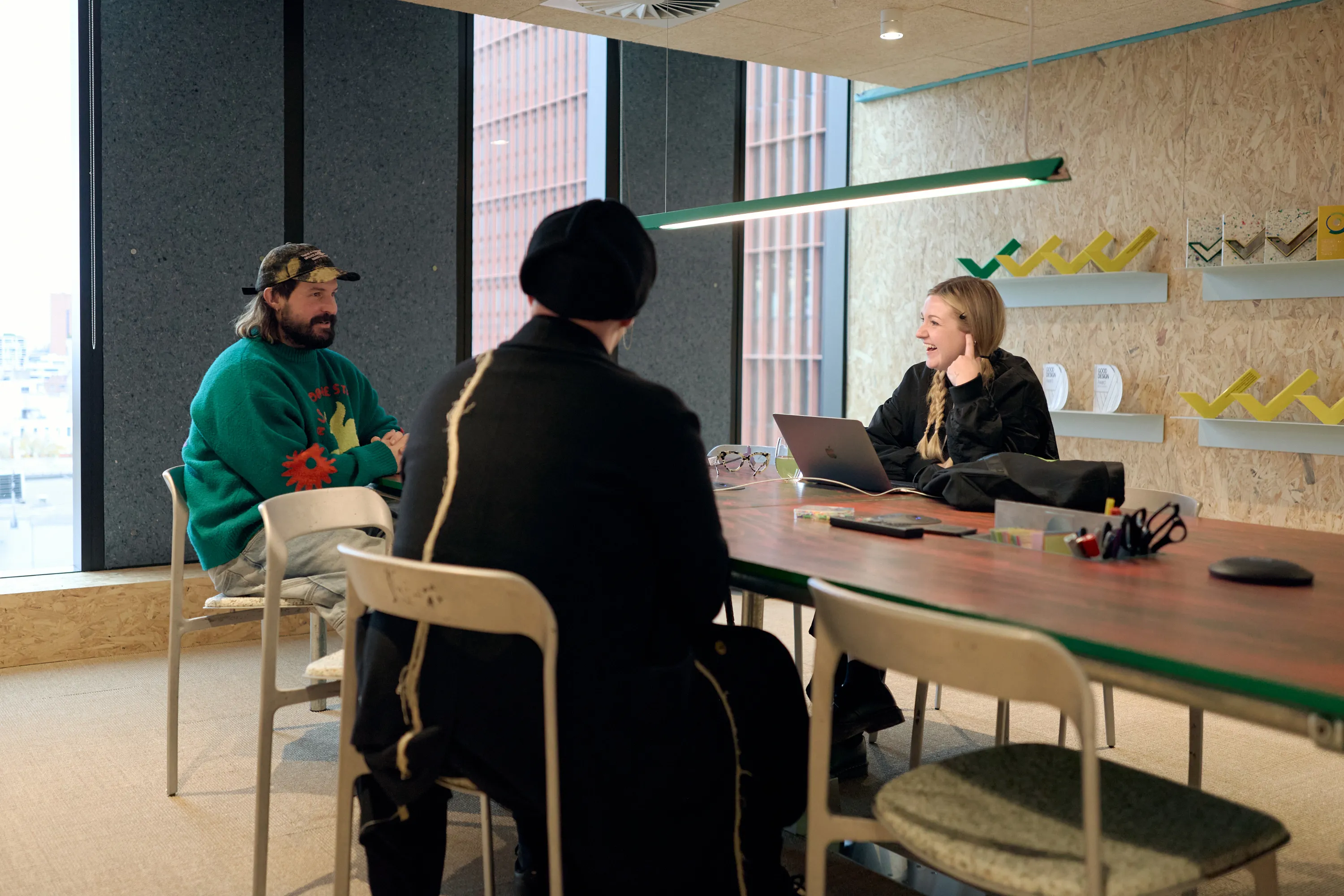
Tell us about HoMie. What is it and what are you attempting to do?
Marcus: HoMie is a streetwear social enterprise that supports young people affected by homelessness or hardship.
We exist to provide opportunities for young people that might not otherwise be there, and provide a safe space for young people to come and thrive. We open up more doors and opportunities for them to get into the workforce and feel supported.
Jack: Young people make up the single biggest demographic of people affected by homelessness in Australia, as of the last census.
You're looking at about 28,000 young people, aged 12-24 affected by homelessness. The sector will tell you that that is probably half the reality. So we’re really looking at probably 50,000 young people affected by homelessness on any given night. In Victoria alone, that number's 7,500 officially, unofficially you are probably looking at 15,000.
For us, we’re working in the preventative space, hopefully providing pathways out of homelessness with the support and opportunities that we're here to provide.
Marcus: That's why we have the drive behind the clothing and making it cool and on trend is so important, because we need to sell clothing every year to provide profits for the program. It's important for us to keep up to date and be ahead of the curve when it comes to the fashion side of things because without the profit, there's no purpose on the other side. It's been something that we've had to jump into the deep end without any real skills in business or fashion, it was a pretty quick dive into the deep end.
Jack: Homelessness is such a difficult topic for a lot of people to grasp and tackle and approach. So clothing and streetwear is a way to, I guess, bridge that gap.
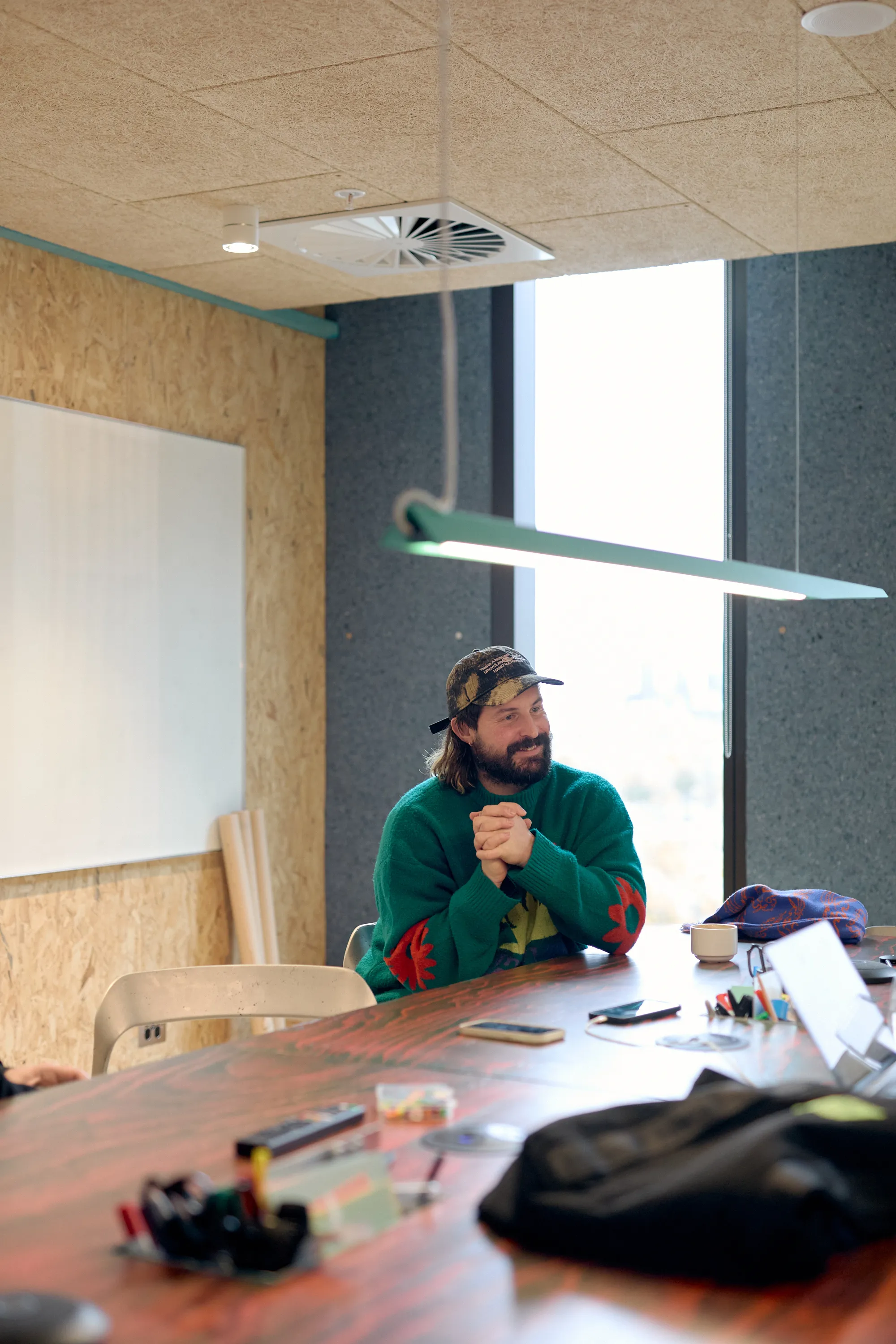
What programs are you running at the moment?
Jack: We've currently got two impact programs we run and there's about to be a third.
Tell us about the biggest one first.
Jack: Our biggest program is the HoMie Pathway Alliance, which is an eight month long education and employment program.
We pay the young people to study a Certificate III in business that we co-facilitate with a local RTO (registered training organisation), and at the same time we employ them either in our store directly, in Fitzroy or with one of our partners. This year our partners are Champion, Nike and Sports Girl. Cool mainstream employers. A lot better than my first job!
The exciting thing for us is that we know it works. We evaluate our programs and we know that 12 months after graduating, 90% of the young people are meaningfully employed.
Jack Howe
That's award wage work, it's on taxable income or they've gone on to further tertiary education. They're pretty amazing numbers. The best comparison we can throw out there to prove the efficacy is looking at the federal government's job active program. For Stream C young people, three months after completing that program, 27% of young people are still employed. We're at 90% 12 months after, so we're pretty confident in the work we do. It's long, it's intensive, it's expensive, but it changes lives and at the end of the day that's the most important thing.
Marcus: Providing opportunities at places like Champion and Nike and the HoMie store is a huge part of why it's successful because they're aspirational places to work. It's about providing aspiration with the clothing and the workplace as well, I think.
Jack: It's quite attractive to the young people coming through the Pathway Alliance as well, just being like, you are not a very traditional caseworker or organisation who works community support service. You just look like anyone they can relate to.
What about the second one?
Jack: We also have the VIP program, where we close our retail store to the public and invite young people affected by homelessness to come in and shop for free.
They get to choose up to five items of free clothing off the racks; brand new stuff, whatever they like. We bring in hairdressers, they can get their nails done, they have lunch with the team. It's a day to really build confidence and connection, both within themselves, that peer group, with us and with their support worker, whatever support service they're coming from.
A lot of young people get a gender-affirming haircut for the first time because they're feeling confident and safe to do so. Having that element of self-determination over your appearance is super important.
Jack Howe
For young people who can't come in for the VIP day itself, we offer VIP packs where we'll talk to their support worker and be like, ‘Hey, tell us about your young person. What are they into? What are they like?’ so we can bundle up a pack for them with clothes and goodies and send it off to them individually.
Once a year or so we'll try and do a big rural one, take the show on the road and get out to Shepparton, or Morwell, or out to community.
And the third?
Jack: The new program we've got in the works is designed to fit in the middle of those two.
We’re tentatively calling it Retail Ready. It's designed to be an eight week job readiness program for young people affected by homelessness or hardship who probably aren't ready for the eight-month commitment of the Pathway Alliance, but they're looking to dip their toe into employment.
Eight weeks is an approachable time where it can be paid, supported, and hopefully quite flexible to meet young people where they’re at. The hope is that it will be there for anyone who needs it, whether they've graduated from the Pathway Alliance, they're coming off of VIP day, or they just want to connect with HoMie in some way. I think it's probably quite unique. We haven't seen a similar program in Australia where it's work readiness but it's actually paid. There's a lot out there where young people are essentially asked to volunteer their time—do it unpaid—which for us doesn't sit super well given how vulnerable they already are. We think it’s possible, so that's coming next year.
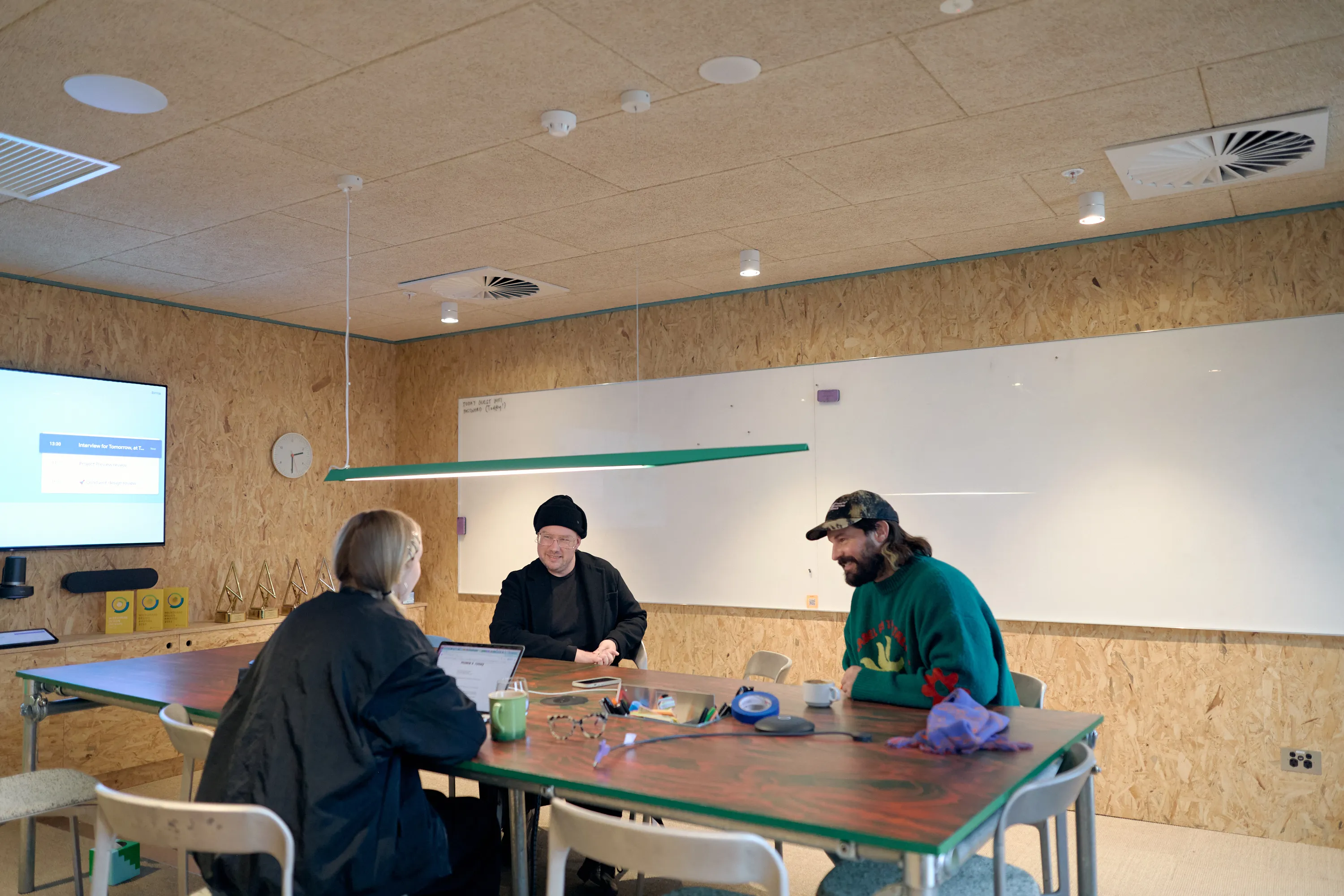
We also heard you’re doing an upcycled range?
Marcus: Yes, we also have a reborn sub-label brand where we upcycle product to save it from landfill.
We started off doing this with excess product that we had, which wasn't much, because we give a lot of our product away on VIP days and we order minimums.
We started to upcycle leftover pieces, putting them online and testing it. People were gravitating towards it and excited by the one-off nature of these garments. We then partnered with Champion who have a lot more excess product and we've since partnered with Nobody Denim, Disney and Mambo.
We've just partnered with a local factory to scale up that operation. Instead of doing 50 garments a week, we can now do 1,500. We’re working with some bigger brands at the moment on some larger-scale collaborations. Whether it's just a brand that's looking to create their own upcycled line, or whether it's a brand that wants to partner with us on a collaboration. We can do that now at scale, which hasn't been done before here in Australia.
It's an exciting project and now it's just about bringing people along that journey and showing them that circularity can be cool and it can be a viable commercial offering.
Marcus Crook
We are able to sell repurposed hoodies double the original retail price, and that just takes a bit of love and reworking. So it is a commercially viable option, we just have to show brands the way now.
Jack: In terms of the actual impact as well, I mean, even just you doing it, essentially it's saved well over a tonne of textiles from landfill.
Marcus: Yeah, I've upcycled over four and a half thousand garments and, it's over a tonne of textiles saved from landfill. That'll ramp up really quickly now as we scale it up.
Jack: Because we are a charity, if someone is donating stock to us as a gift for us to sell, they can write it off on their tax as a gift. So it's a nice circular mechanism for everyone.
You have so many plates spinning! Have you got anything else going other than retail?
Marcus: We also have HoMie Creative, which is a content production agency.
We started off doing all of our own content and then did little bits and pieces for other brands. And we're like, well, we can do a lot more of this content as a way to bring in more money to the business.
We've partnered with Truce Films , so really excited about this next chapter and working on some bigger projects with them as a way to provide more revenue for the programs.
Jack: I think that's one of the big things. For us, revenue essentially just means self-determination and the security of our programs.
So we're currently 67% self-funded and then the rest comes from a combination of philanthropy and donations. We don't receive any government support, so we're constantly looking to create new revenue streams and grow them wherever we can.
HoMie Creative is really exciting just because it’s this incredible production house, and we are, again, a certified social enterprise, so it suddenly opens up the door for things like social procurement spend. With Truce backing it, we think it's going to get really exciting really quickly
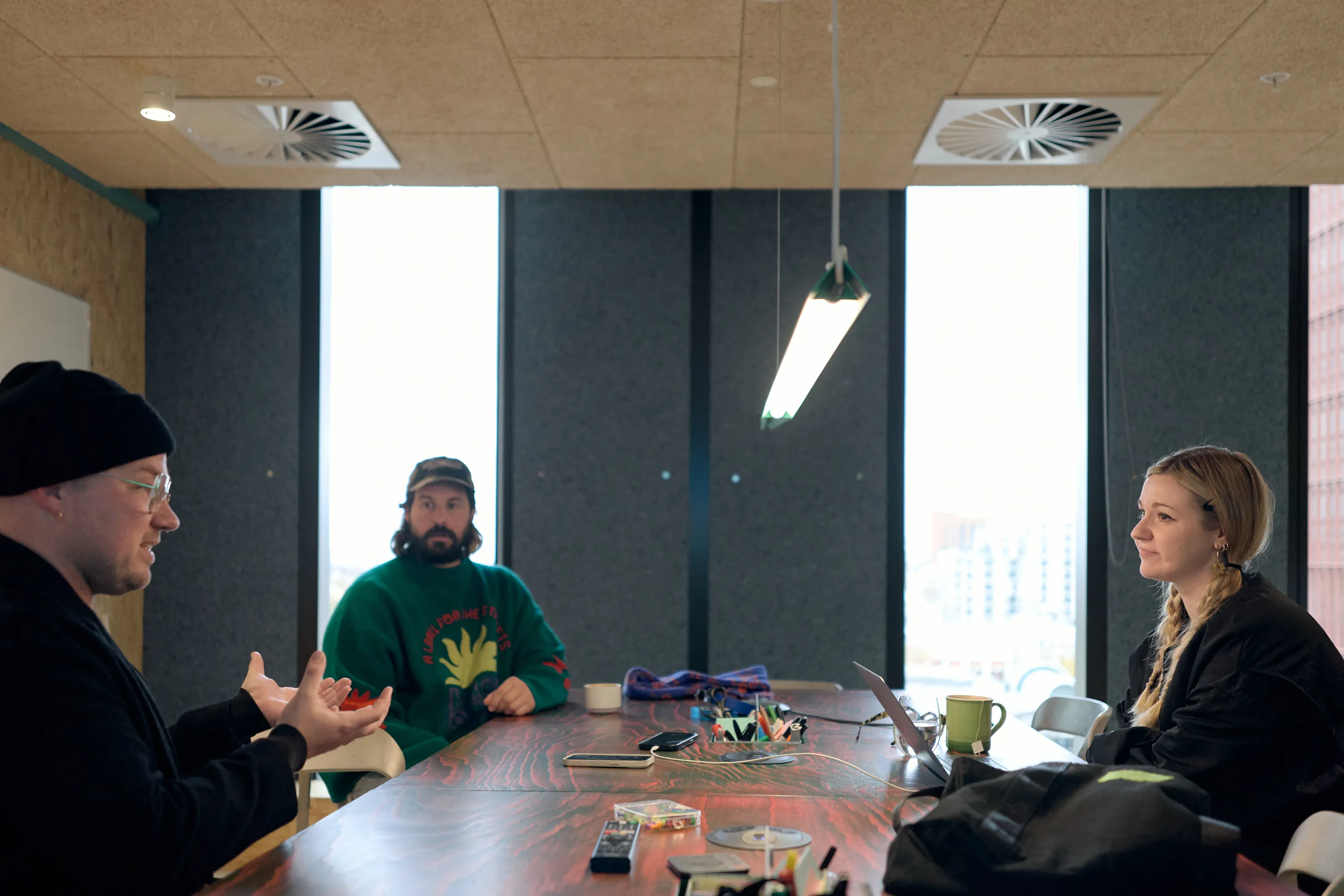
Why do you do what you do? Tell us about the fire that's driving you.
Marcus: I grew up in a small country town in a really loving, supportive family like the Brady Bunch, three boys, three girls, sort of perfect family, but humble beginnings as well. My dad was a school teacher and mum supported bringing up six kids. I always knew not to take things for granted and have had a really great upbringing.
Moving down to Melbourne when I was 18 sort of opened my eyes a lot to issues like homelessness. You don't visibly see people in that state in country towns.
Volunteering overseas is how I met Nick and Ellen, our other founding members. We were drawn to social justice and wanting to do good for others. You really open your eyes when you travel and see a different side of the world and that makes you realise how lucky we've got it here.
Coming back to Melbourne and working in the city, I wanted to understand homelessness and what was causing it, and what we could do to help. That's how it sort of formed originally.
It's just that drive to support other people that might not have it as good as we do. A lot of the time it's at no fault of their own.
So yeah, that's the drive. Also the graduations that we have every year really keep us inspired and give us that motivation to keep pushing. We're seeing the impact of the young people that go through the program throughout the years. So that keeps us motivated.
Jack: I spent a lot of my teenage years in high school growing up in Cambodia, so obviously I saw a pretty different side of life to Brunswick, which is where my childhood was. So I think I always had this drive and interest in sort of changing the world. Why wouldn't you try and give back in some way? You've got skills, opportunity, resources. If you're not trying to give back, then what are you doing? What's the point?
HoMie runs amazing social impact programs with young people. Can you share a favourite moment from those programs with us?
Marcus: I feel like seeing where young people end up a couple of years later is pretty special. Hearing those stories like that they've landed their dream job at Jetstar, they always wanted to be a flight attendant, and they're now doing that. Those moments where you hear about where they've ended up are really special for me.
Jack: Very similar to me. I think it's those ones where it's 2, 3, 4 years down the line and they're reaching back out and they're saying, ‘Hey, I just wanted you to know this is what I'm doing now’. We've had young people coming back and they're like, ‘oh yeah, I just bought a house’.
There's a lot of young people who graduate and then go back to school to study youth work or social work because for a lot of them, they knew what support they needed during that period of their lives and they want to give something back and help young people who are in a similar position to where they were five years earlier.
That's always pretty special to me as well. They'll be the ones referring young people into the Pathway Alliance after they've done it a few years earlier and it's a pretty surreal 360 moment, and it's nice to know that they want to stay engaged as well
Marcus: I guess from a brand perspective as well, partnering with a brand like Mambo. I grew up wearing that stuff as a kid and then having them reach out to us and wanting to do collaborations and Disney and Champion when they first did as well. That stuff is just bizarre to me. I think those are real pinch yourself moments.
Even just seeing someone on the street wearing our stuff, I'm always like, oh my God, I can't look at them and feel embarrassed. You still get that spark of like, oh my God, that's so cool. It's so awesome that they're supporting us. I don't think that will ever go away. It's been 10 years and I still have that feeling whenever I see it out on the street.
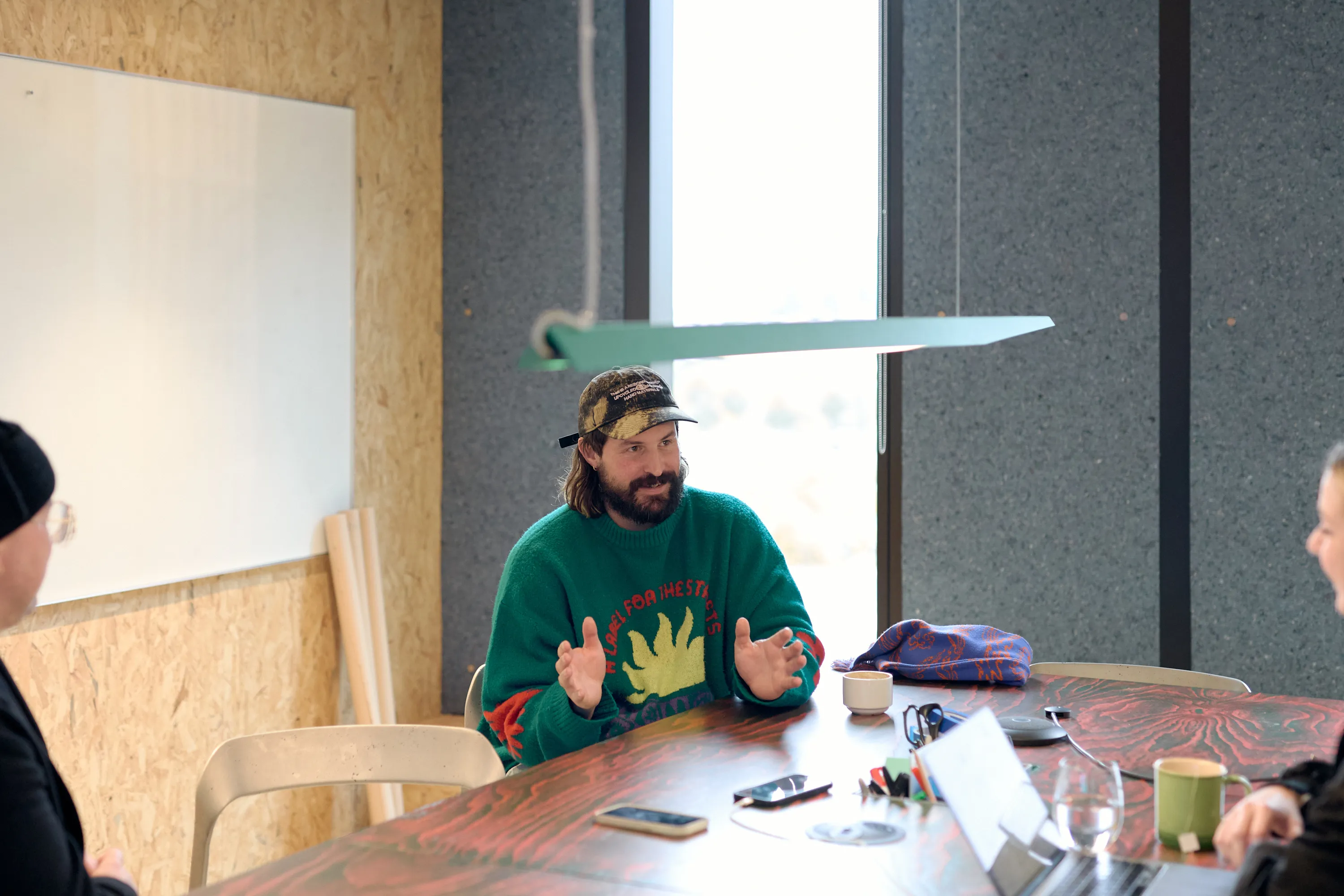
What is your dream opportunity for creating impact in the world?
Marcus: We're really well versed in the retail aspect of it now, but who knows where this could lead in terms of videography and photography and production and manufacturing or warehouse and logistics with these partnerships we have with Truce and the factory we have. Are there opportunities to broaden our scope? Not everyone wants to work in retail. Are there opportunities in the space we have that we can provide more opportunities? Who knows, maybe one day we can offer more opportunities in that supply chain that we have.
Jack: I think obviously the best case scenario is that there's no need for a HoMie because we've actually built a society where you don't need programs to support young people affected by homelessness because there are no people affected by homelessness. That's the best case scenario. Let's actually fix a huge amount of these structural issues that are causing this.
It'd be great to have HoMie everywhere, all across Australia because we know these programs work and we can scale it. We know we can. It's literally just a question of money.
Jack Howe
So if someone came to us with $5 million, we can set up hypothetically for anyone reading this newsletter, we can genuinely, go set up in Sydney, Brisbane, Adelaide, Perth, Newcastle, Orange, Darwin, we can take it on the road and it's not that hard to do. We can do it. It's just that capital.
Marcus: Yeah. I feel like we've done all the hard work in terms of the system and process and the learnings over the 10 years. So now we're in a position where we could pick that up and put it anywhere.
What needs to change today to make this dream come true tomorrow?
Jack: Honestly, it sounds really silly, but it is just cash. The good thing about us is a huge amount of that revenue, once you pass that startup, it does become self-sustaining to a large degree. It is initial capacity funding that will honestly accelerate growth quite quickly for us. Otherwise, we'll do what we've been doing for the last 6, 7, 8 years. We'll keep plugging along and slowly growing it and making change in the community where we can.
Marcus: There's a lot of different services and offerings that we provide. If you have any skills that we could use, we take on volunteers if they're bringing something to the table. To get involved: comment and share our stuff. It's so important. It gets us out there in what's a harder and harder digital space at the moment, so that's awesome. If you can buy our stuff to support us.
Jack: Skilled volunteering is always amazing. If you can't do that, engage our services, whether that is HoMie creative, getting us to make company merch for you. Engage those budgets that your company has. If you can afford to shop with us, buy some socks, buy a gift voucher for Christmas, that's incredible. Anything you can do to share the word. I think it is that. It's such a competitive market out there and it's so noisy and everyone's being pulled in a million different directions at any given moment. So anything you can do to sort of centre us in that is always appreciated.
